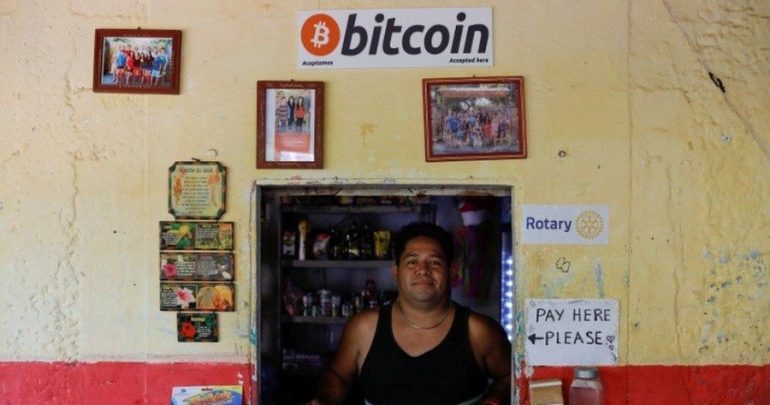El Salvador today became the first country to adopt bitcoin as legal money, a real-world experiment that proponents say will cut supply costs for the billions of dollars shipped from abroad, but critics have warned it could trigger money laundering.
The change means that businesses will accept bitcoin payments along with the US dollar, which has been Salvador's official currency since 2001 and will remain legal tender.
President Najib Boukele, who promoted the adoption of cryptocurrency and digital money, says it will help Salvadoran people save about $ 400 million, which government estimates are spent annually on remittance commissions.
The 40-year-old president is popular with the people but his critics, including the US government, accuse him of eroding democracy.
Skeptics say bitcoin could increase regulatory and financial risks for the Central American country, and opinion polls suggest Salvadoran cautious about the volatility of the cryptocurrency, which could lose hundreds of dollars in a single day.
To warm up a wary audience, Boukele promised every citizen $ 30 in bitcoin if they subscribed to a government e-wallet. Prior to its adoption, Salvador bought 400 bitcoins, Boukele said, helping the currency rise above $ 52.000 for the first time since May.
In the early hours of today, the wallet did not appear on the loading platforms of Apple, Gooogle and Huawei, leading to a series of tweets from Boukele, including one with an angry red face.
"Release @Apple @Gooogle and @Huawei," Boukele wrote. The wallet was later available from Huawei.
Some citizens are optimistic.
"It will be beneficial ... we have family members in the United States and they can send money free of charge while the banks charge," said Reina Isabel Aguiar, owner of a store in El Zonte Beach, about 49 miles (XNUMX km) southwest of San Salvador. .
Known as the bitcoin beach, the city of El Sonde aspires to become one of the first bitcoin economies in the world.
In anticipation of the adoption of bitcoin, the government has installed ATMs that will allow the conversion of bitcoin into dollars and withdrawals without commission from the electronic wallet, called Chivo.
Boukele tried yesterday, Monday, to lower the expectations for quick results and asked for patience.
"Like all innovations, Salvador's bitcoin process has a learning curve. "Every road to the future is like this and not everything will be done in a day or a month," he said on Twitter.
The cryptocurrency is very volatile, reaching $ 64.000 in April and dropping to almost $ 30.000 in May this year.
The adoption of bitcoin as the legal tender along with the US dollar has blurred the outlook as El Salvador seeks more than $ XNUMX billion in funding from the International Monetary Fund.
Analysts fear that the adoption of cryptocurrency could trigger money laundering in a country with serious problems of government corruption and organized crime.
Boukele has promised to fight corruption, but the Biden government recently blacklisted some of its close allies.
In just two years, he has taken control of almost all the levers of power. Last week, supreme judges appointed by his allies ruled that he could serve a second term.
Following the passage of the bitcoin law, Moody's downgraded Salvador's credit rating, while the country's dollar-denominated bonds also came under pressure.
But Boukele, who does not shy away from controversy, retweeted a video yesterday showing his face on that of actor Jamie Foxx from a scene in Quentin Carantino's "Django, the Punisher" about slavery in the United States. The video shows Boukele whipping a slave trader with the IMF emblem on his face.
Boukele later deleted the retweet.
In his own tweet, Boukele wrote: "We must break the examples of the past. El Salvador has the right to move to the first world "
via
